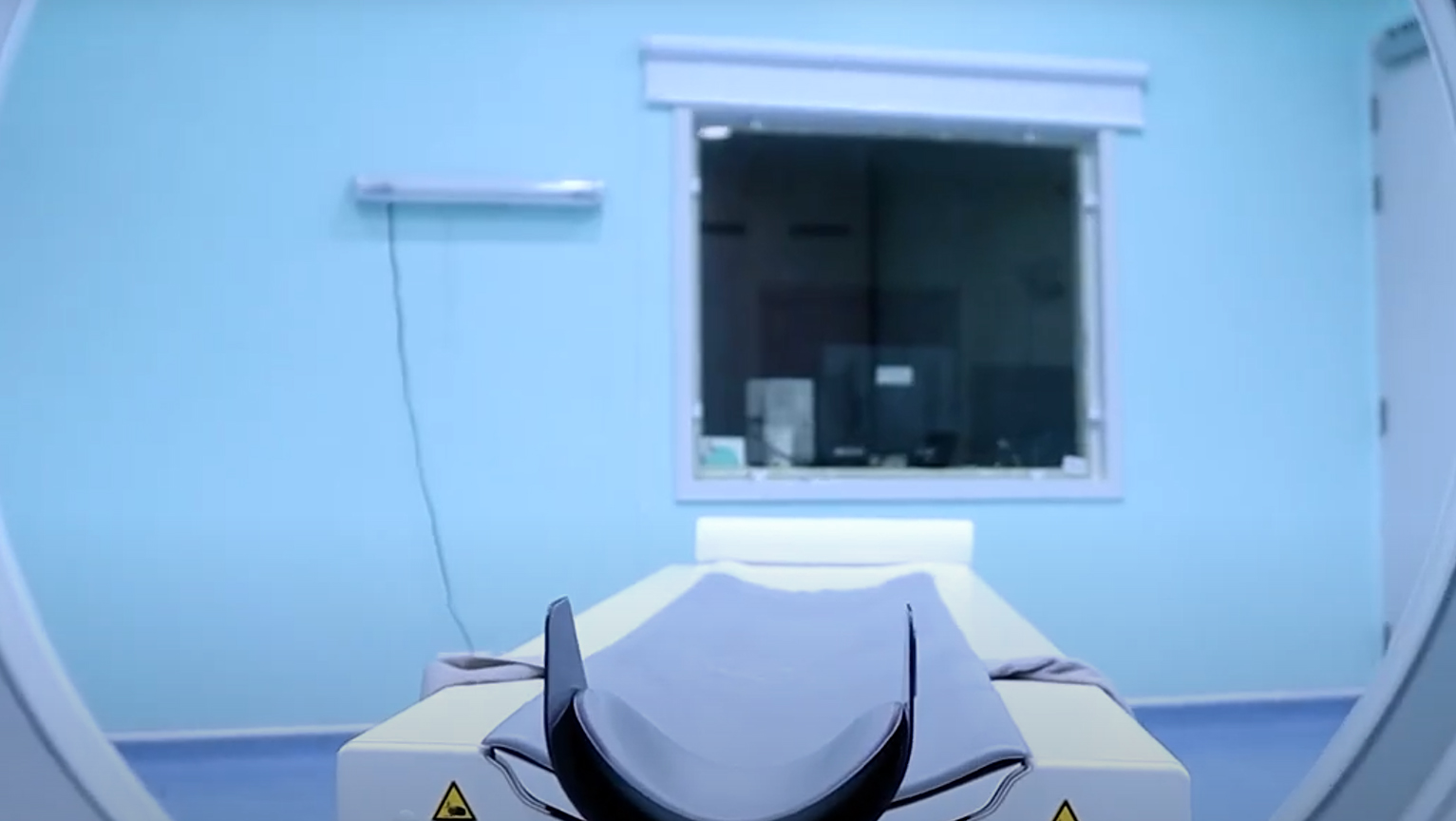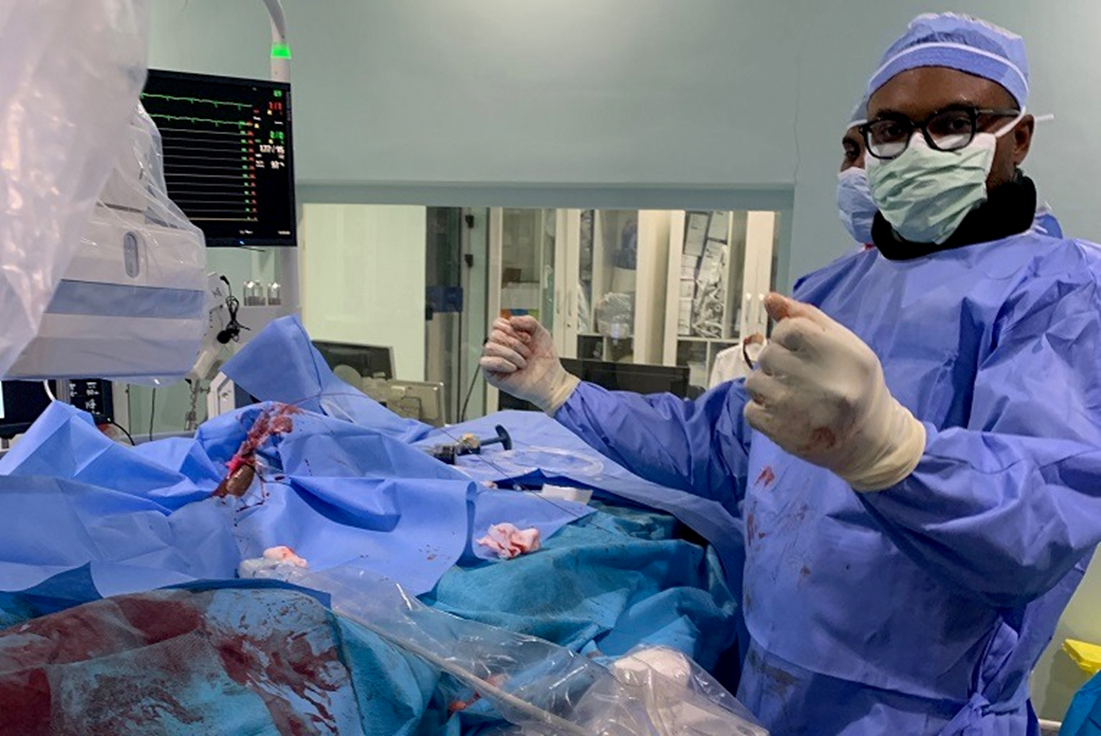
Interventional Radiology – The Future of Minimally Invasive Treatment
What is Interventional Radiology
Interventional Radiology (IR) is an advanced medical specialty that uses minimally invasive techniques and advanced medical imaging technology to diagnose and treat various health conditions.
This innovative medical treatment approach offers patients several key benefits, including reduced recovery time, decreased pain and risk, and more cost-efficient procedures.
With technological advancements continuing to drive the growth of interventional radiology, the future looks bright for this exciting and highly impactful medical specialty.
Interventional Radiologists (IR) – What They Do
Euracare is proud to have two of West Africa’s leading experts in IR, Dr. Hammed Ninalowo and Dr. Benjamin Sarkodie, who are at the forefront of providing exceptional care to patients using this specialized treatment method.
Dr Hammed Ninalowo, is a US-trained Vascular and Interventional Radiologist who completed his training at the prestigious University of Pennsylvania and is the first US-trained Physician to offer the full spectrum of interventional Radiology services in Nigeria.
Dr. Benjamin Sarkodie is a fellow of the West African College of Surgeons and is Euracare Ghana’s Medical Director and Head of Radiology. Dr. Benjamin was the first Interventional Radiologist in Ghana.
The minimally invasive nature of IR reduces recovery duration, pain, and medical risk to patients who typically require conventional “open surgery.” With continuous technological advancement, the treatments IR can successfully perform are advancing and expanding.
Interventional Radiology is performed by an Interventional Radiologist, who uses medical imaging technology to guide a catheter or other small instruments through the body to the treatment area.
The Interventional Radiologist then performs the procedure while monitoring the real-time images of the treatment area, ensuring maximum precision and accuracy.
Procedures carried out by Interventional Radiologists
Interventional Radiologists perform a number of procedures. These including:
- Blocked Fallopian tubes
- Closed vessels
- Malignant tumors: lungs and liver cancer
- Fibroid embolization
- Non-healing ulcers on diabetic patient’s legs
- Angiography
- Angioplasty
- Stenting
- Thromboly
- Embolization of GI bleeds
- Ablation
- Transjugular Intrahepatic Portosystemic Shunt- TIPS
- Image-guided Biopsy
- Venous Access
- Gastrointestinal Interventions
- Hepatobiliary Interventions
- Gynaecologic Intervention
- Genitourinary Interventions
- Arterial and Venous Interventions
- Dialysis Access Intervention
- Musculoskeletal Interventions
- Interventional Oncology
- Pain Management
- Lymphatic Interventions
Equipment used for interventional radiology procedures
Interventional Radiology procedures require advanced medical imaging technology and specialized equipment to ensure accuracy and precision. Some of the kits are:
- X-ray machines
- CT scanners
- MRI machines
- Ultrasound machines
These technologies and equipment allow Interventional Radiologists to perform complex procedures with optimal efficiency and minimal risk to the patient.
Overall Interventional Radiology is a cost-efficient and minimally invasive method of treating various health conditions. With advanced medical imaging technology and specialized equipment, Interventional Radiologists can provide patients with safe and effective treatments that minimize the risks associated with traditional open surgery. If you are suffering from any of the aforementioned conditions listed above, visit our website to book an appointment or get in touch with one of our IR specialists.
Frequently Asked Questions
- Is Interventional Radiology safe?
Answer: Interventional Radiology is a minimally invasive procedure with a lower risk of complications than traditional surgery. With advanced medical imaging and equipment, IR has become a safe and effective treatment method.
2. Is Interventional Radiology painful?
Answer: Interventional Radiology is designed to cause minimal discomfort to the patient. Most IR procedures do not require general anesthesia or local anesthesia, instead mild sedation is used. This makes the procedure less painful and less stressful for the patient.
3. How long does an Interventional Radiology procedure take?
Answer: The length of an Interventional Radiology procedure depends on the complexity of the procedure. Most IR procedures are completed within a few hours, and the patient can go home the same day. This makes IR a convenient and efficient option for many patients.

Christmas Greetings
Seasons greetings to all our patients and partners. May you have a blessed Christmas with your dear ones to start a wonderful New Year!

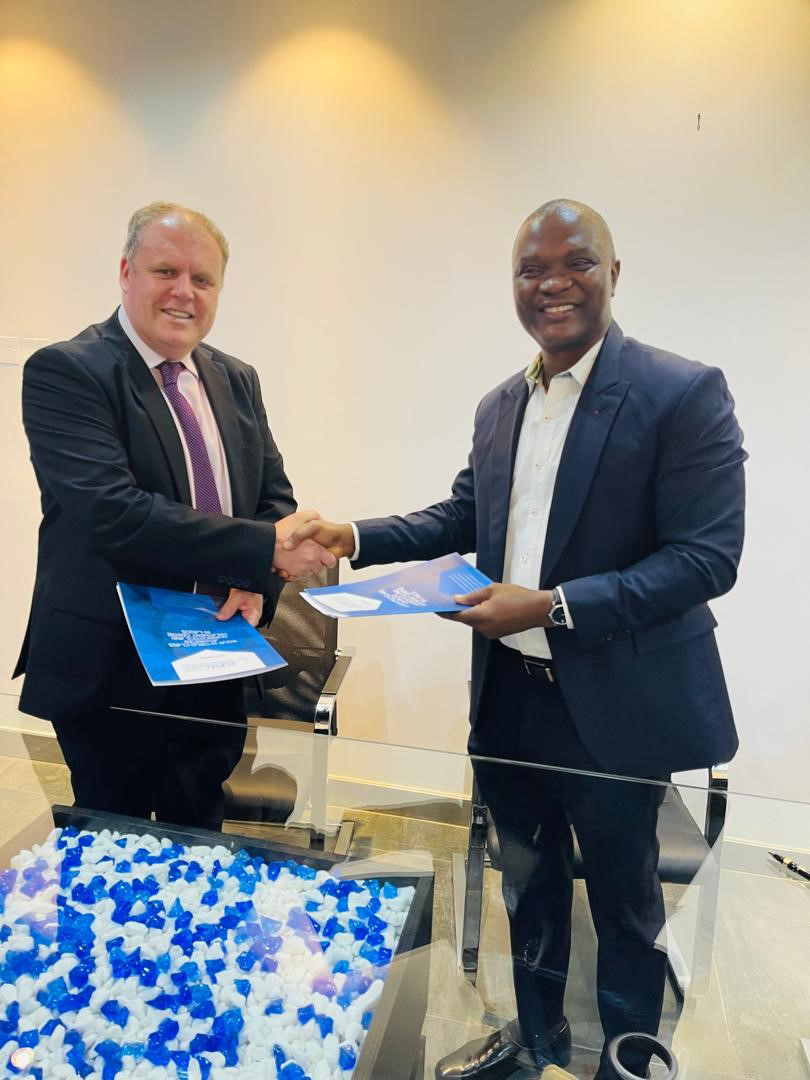
Company Announcement
The CEO and Founder of RNZ Global, Professor Wale Sulaiman and Managing Director of Euracare Nigeria, Pieter Slabberts, today signed a Memorandum of Understanding announcing a new partnership between the two organisations.
“This collaboration brings with it an exciting dynamic in the Hospital Operations and Management domain” states Mr Slabberts. “There are many instances where organisations require international expertise to manage and operate healthcare facilities. This partnership between RNZ and Euracare will provide exactly that” Prof Sulaiman explains.
In this partnership, RNZ Global will be responsible for the clinical management and governance, patient safety, quality, clinical processes, and innovations, while Euracare will ensure day-to-day administrative and operational excellence.
We believe that bringing together these two world-class organizations with world-renowned Leaders in healthcare, we are advancing healthcare not only in Nigeria but, establishing unique centres for medical excellence and innovation for the whole African continent.
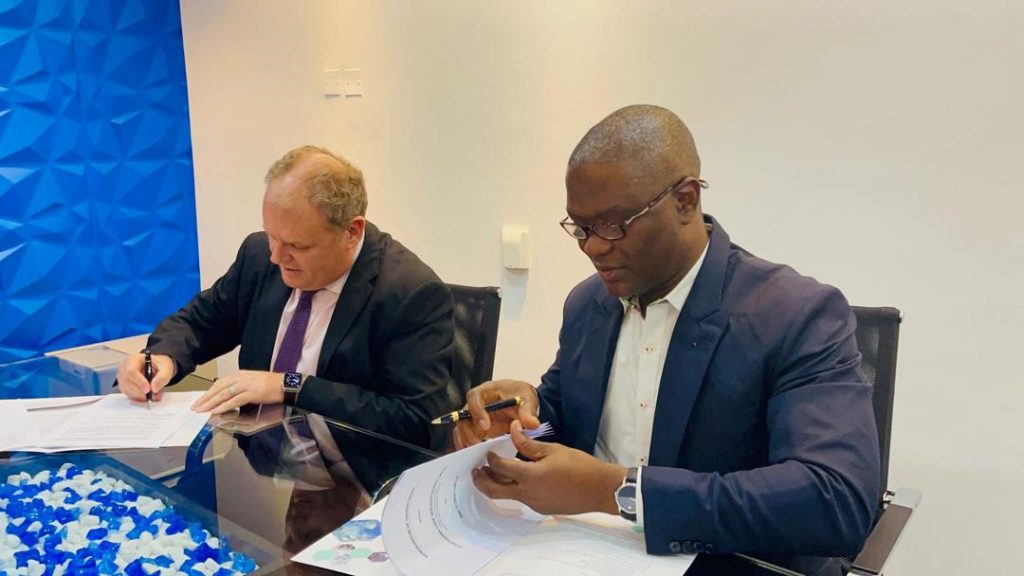

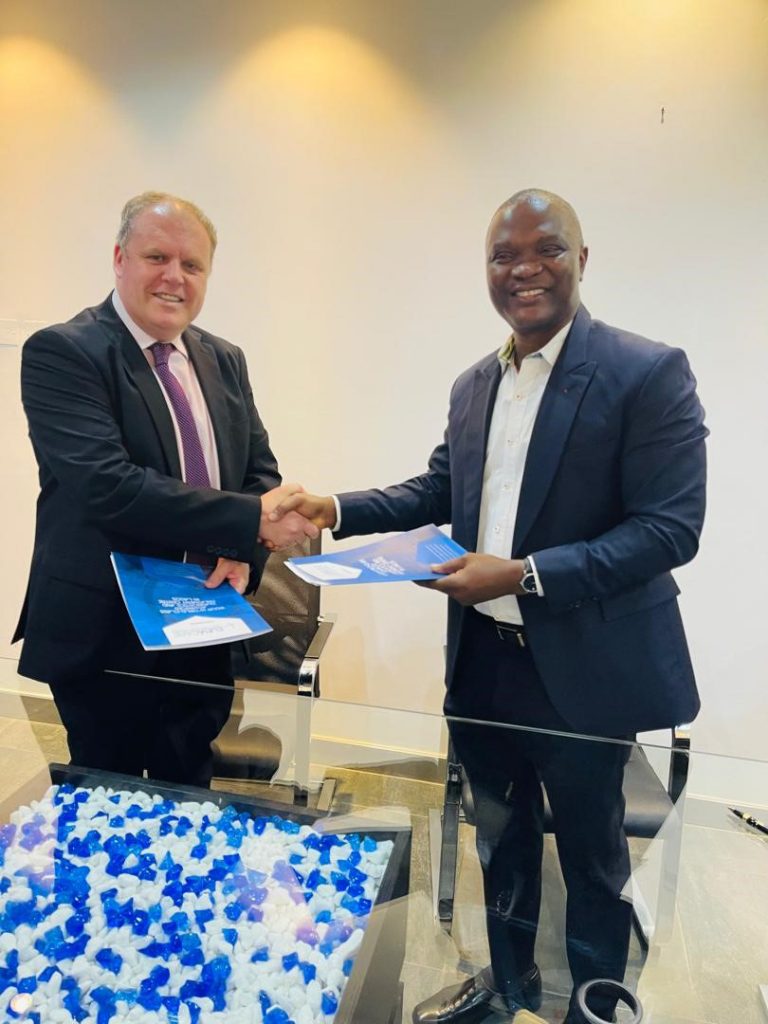
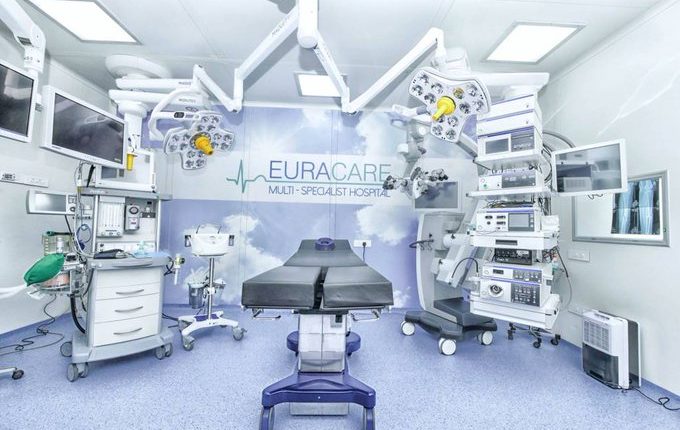
I Came to Nigeria to Receive the Best Treatment – Man Shares Experience at Euracare Multi-Specialist Hospital

Happy Nurses Day
Happy Nurses Day! You have my heartfelt respect and gratitude. On this day we honour the work of our nurses for the contribution they are making every day. Thank you to our everyday heroes!


March is Colorectal Cancer Awareness Month!
Colorectal cancer is the third most common cancer worldwide, accounting for 10% of all the cases of cancer.
Colorectal cancer is the fourth most common cause of death from cancer. Colorectal cancer survival depends on the stage at which it is diagnosed, with later-stage diagnosis having poorer survival.
Make a booking for Colorectal Cancer Screening already today!
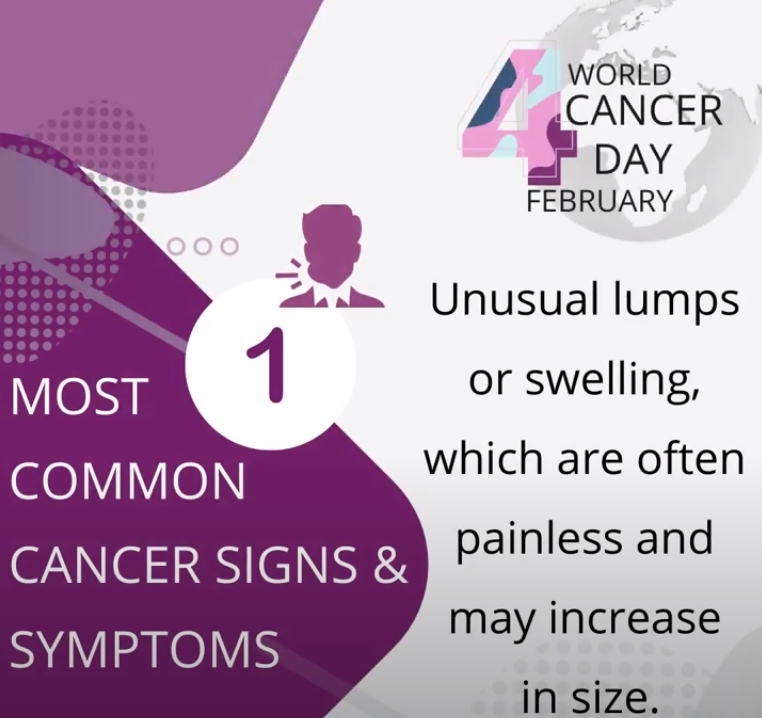
World Cancer Day
World Cancer Day is an international day marked on February 4 to raise awareness of cancer and to encourage its prevention, detection, and treatment.
Do You Know Most Common Cancer Signs and Symptoms?
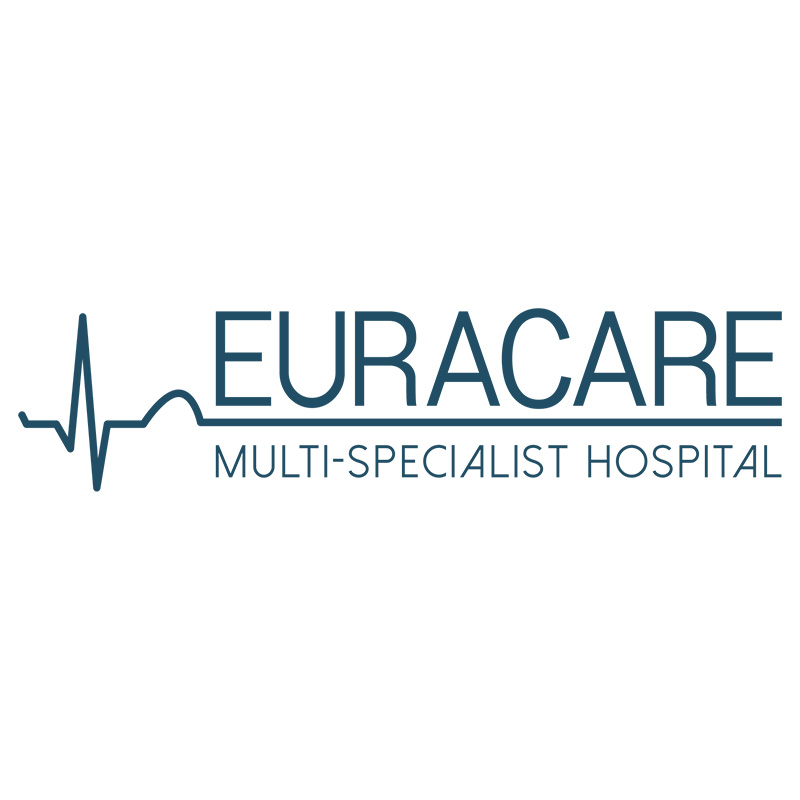
Euracare Nigeria and Assene-Laborex launched CSR event
As part of its corporate social responsibility, Euracare Multi-Specialist Hospital Nigeria, in collaboration with its sister company Assene-Laborex, embarked on a medical mission to the village of Ijale in Ogun State from Friday, Nov 13 to Sunday, Nov 15, 2020. The mission was addressing minor, immediate medical needs of about 1,000 villagers who have had […]




